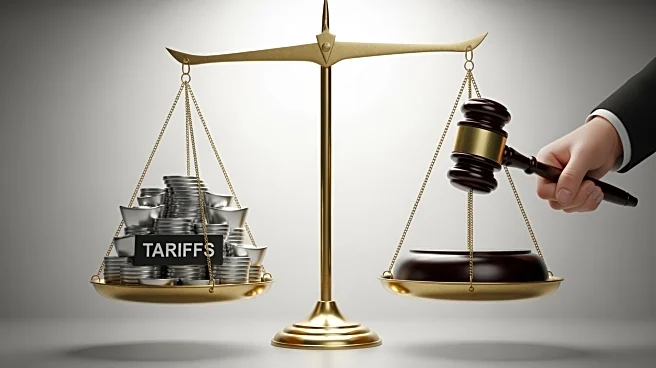What's Happening?
The U.S. Supreme Court is set to hear arguments regarding President Trump's authority to impose tariffs under the International Emergency Economic Powers Act (IEEPA). The case challenges the legality of tariffs imposed by the Trump administration, which
have been contested by small businesses and states. These tariffs, initially announced in April, were justified by the administration as necessary due to drug trafficking and trade deficits. The outcome of this case could significantly impact the administration's trade strategy and the billions collected through these tariffs.
Why It's Important?
The Supreme Court's decision will have far-reaching implications for U.S. trade policy and presidential powers. A ruling in favor of Trump could expand executive authority, allowing future presidents to impose tariffs more freely, potentially bypassing Congress. This could lead to increased volatility in international trade relations and affect businesses reliant on stable trade policies. Conversely, a decision against Trump could limit presidential powers, reinforcing Congressional authority over trade matters and potentially leading to refunds of collected tariffs, impacting government revenue and business operations.
What's Next?
The Supreme Court's decision is expected by January, with potential implications for ongoing trade negotiations and existing tariffs. If the court rules against Trump, the administration may seek alternative legal avenues to impose tariffs, though these would require more procedural steps. Businesses and international partners are closely monitoring the case, as its outcome could influence future trade agreements and economic strategies.
















